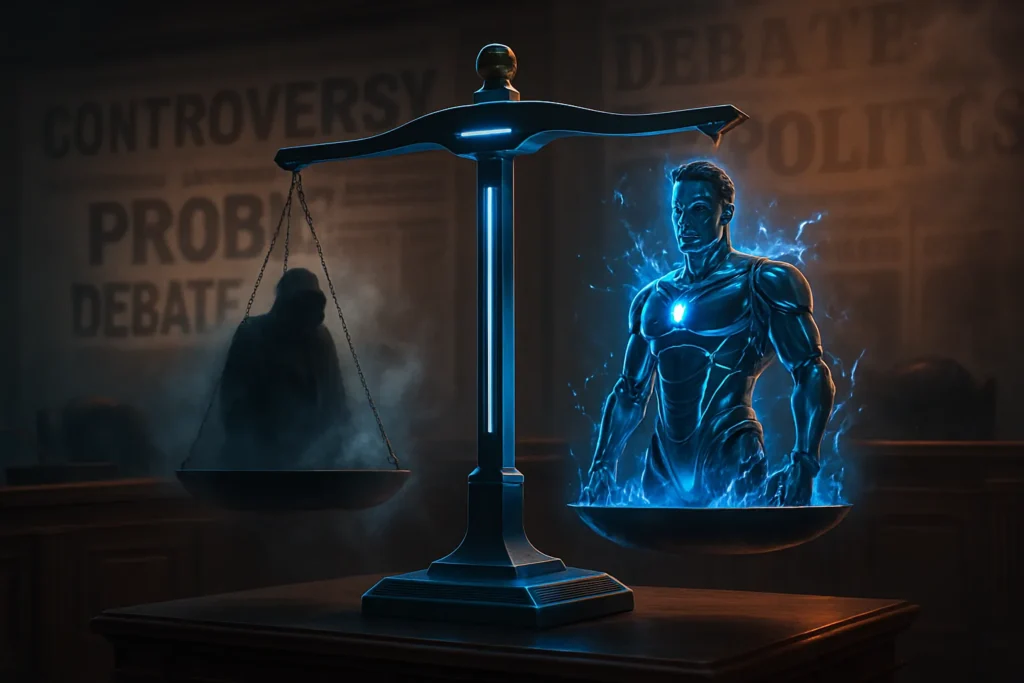Musk Targets Trump Over Jeffrey Epstein Developments
Tesla CEO Elon Musk has publicly criticized the Trump administration over its handling of the Jeffrey Epstein case, stirring renewed debates and tensions within conservative political circles. Recently, Musk took to social media platform X to highlight what he termed the “Official Jeffrey Epstein Pedophile Arrest Counter,” emphasizing the number “0000” to denote a lack of arrests made in connection with the case. The move marked Musk’s latest confrontation with former President Donald Trump and his administration over the Epstein matter.
Musk’s latest criticism follows a Justice Department and FBI memo that concluded there is no evidence that Jeffrey Epstein, a convicted sex offender who died by suicide in 2019, maintained any client list of prominent figures he could potentially blackmail. This report also dismissed theories regarding Epstein’s death being suspicious or involving foul play. Musk reacted strongly, suggesting that the administration’s explanation falls short and criticizing their decision not to release further details regarding Epstein’s connections and activities.
Musk previously accused Trump adviser Steve Bannon and later retracted his accusation against Trump himself of being named in Epstein-related files, adding complexity to the ongoing controversy.
“The Epstein case continues to raise a lot of unanswered questions, and the absence of additional arrests is worrying and frustrating,” Musk expressed on his social media post, echoing broader dissatisfaction among certain conservative groups who initially expected transparency from the Trump administration.
This confrontation has intensified a public rift between Musk and Trump, who were once seen as allies. Musk’s comments have also energized broader public debate on the handling of the Epstein case, influencing discussions among political commentators and observers.
Justice Department Memo Fuels Criticism and MAGA Frustration
A recent Department of Justice memo, publicly released under the Trump administration, stated explicitly that no “client list” exists connected to Jeffrey Epstein’s criminal activities. The memo further clarified that no additional charges would be brought against any individuals tied to Epstein, indicating that federal investigators found insufficient evidence of any conspiracy or complicity among Epstein’s known associates.
The release of these findings appears to have deepened existing frustrations within Trump’s own base. Many supporters of the former president had anticipated groundbreaking disclosures and arrests linked to Epstein’s alleged activities involving numerous elites. However, conservative influencers who were provided access to documents titled “The Epstein Files: Phase 1” noted that the content was “largely publicly available information,” leading to disappointment and skepticism.
Attorney General Pam Bondi has faced significant backlash for her handling of the matter and for initially suggesting that revealing Epstein-related documents would occur. Conservative activist Laura Loomer and others from the far-right spectrum have publicly called for Bondi’s resignation, accusing her of covering up potential wrongdoing since her tenure as Florida Attorney General.
“The DOJ and FBI investigations have thoroughly examined all available evidence regarding Epstein, and we found no evidence supporting conspiracy theories involving high-profile individuals,” Bondi defended in a recent statement, attempting clarity amidst spreading discontent.
Despite these official statements, dissatisfaction persists among many conservative factions. Bondi’s clarification regarding the Epstein files, comparing them to other historically sensitive files like those involving JFK and Martin Luther King Jr., has not sufficiently appeased critics.
Historical Context and Broader Implications of the Epstein Case
Jeffrey Epstein’s controversial death in 2019 has continually stirred conspiracy theories and suspicions within the public sphere. Epstein, who was awaiting trial on federal charges related to sex trafficking, had connections with several prominent individuals, including celebrities, politicians, and business leaders. However, the extent and implications of these relationships remain a source of speculation due to the limited transparency surrounding Epstein’s interactions.
The Epstein controversy highlights broader concerns about accountability and transparency within government handling of sensitive and high-profile cases. Musk’s vocal dissatisfaction underscores public skepticism regarding the completeness of official investigations and the veracity of government issued statements.
Historically, politically sensitive cases involving notable figures often attract controversy and speculation. The lack of transparency or perceived reluctance for thorough disclosures can fuel public distrust, potentially undermining institutional credibility. Analysts note that the Epstein case exemplifies such challenges, as substantial segments of the American public remain unsatisfied with provided explanations and procedural transparency.
Furthermore, the political ramifications are notable, marking fractures within previously cohesive political groups and alliances, notably within MAGA circles and among conservative influencers.
“Epstein’s case is more than just about a single individual’s crimes; it symbolizes broader issues concerning power, privilege, and accountability,” commented Dr. Sarah Thompson, a political analyst specializing in public trust and government transparency.
The ongoing debates and confrontations between prominent figures like Musk and former President Trump underscore the case’s enduring political significance. The discord may influence future political alignments and campaign strategies, particularly as transparency and accountability remain pressing issues for voters across political affiliations.


